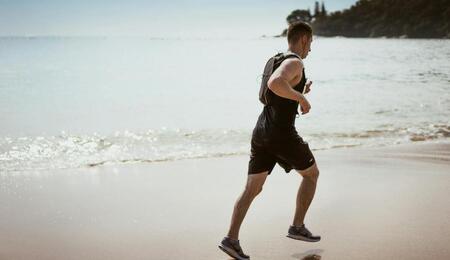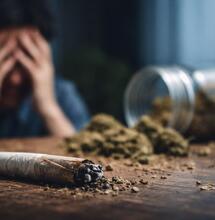Should You Use Cannabis for Exercise?

People sometimes use weed to improve their workout experience and get more motivation as they try to stay fit. If you use weed after a workout session, it’s typically for muscle relaxation and pain relief. But whether cannabis is good for exercise is something that wasn’t so well investigated, until now.
It is possible to boost motivation and make exercise more enjoyable by taking cannabis before a workout session. But at the same, weed can impact performance in not a good way. Those are some of the key takeaways from a study by the University of Colorado that included 42 runners.
Researchers in the study say that both THC and CBD can improve exercise, with CBD perhaps being the better option of the two. The difference is that THC can make exercise feel more challenging due to increased heart rate, while CBD does not generate this side effect.
While cannabis can improve satisfaction during workout, it’s not considered a performance-enhancing drug, thus its use should be approached with caution, the researchers said.
Cannabis Could Be Used as a Tool to Get People Moving
Many people might think that smoking weed brings you into this state of “couch-lock” where you glue yourself on the sofa. And for the matter of fact, some strains can really make you feel like you want to sit down and never move again for the rest of the day or evening.
But other strains achieve quite the opposite effect. They stimulate and give you the needed boost for doing a workout or completing other tasks that require energy and productivity.
The growing trend of people using cannabis in time for exercise is the main driver behind the latest University of Colorado study. Its authors believe that cannabis can help you be more physically active.
“The bottom-line finding is that cannabis before exercise seems to increase positive mood and enjoyment during exercise, whether you use THC or CBD,” said first author Laurel Gibson, a research fellow at the Boulder’s Center for Health and Addiction at the University of Colorado (CU Change). “But THC products specifically may make exercise more effortful,” she added.
“We have an epidemic of sedentary lifestyle in this country, and we need new tools to try to get people to move their bodies in ways that are enjoyable,” said another study author, Angela Bryan, a professor of psychology and neuroscience and co-director of CU Change. “If cannabis is one of those tools, we need to explore it, keeping in mind both the harms and the benefits.”
Being a public health researcher, the main interest for Bryan here was to see how cannabis can potentially impact those who are unmotivated to exercise.
In a previous survey, the CU Change professor found out that 80% of users took weed before or shortly after exercise. All the more reason to further investigate what happens with users when they reach out for cannabis as they engage in physical activity.
The study appeared in the journal Sports Medicine at the end of 2023, coinciding with the 10-year anniversary of Colorado launching the first legal adult-use cannabis market in the U.S.
Assessing Runner’s ‘High’ and Motivation for Exercise
The 42 participants who were invited for the trial are Boulder-area volunteers who already run while using some pot. In the initial part of the study, Bryan and her research group collected fitness, measurements, and other relevant data for each volunteer.
In two separate sessions, the participants ran on a treadmill at a moderate pace for half an hour. Periodically they answered questions about how motivated they felt, whether they were enjoying the activity, how difficult it was, and what were their perceptions of time and pain.
While the participants were sober for the first session, they did use cannabis before the second one. Respecting the federal prohibition of marijuana possession and distribution on college campuses, they smoked at home for that session.
In general, participants reported greater enjoyment and more intense euphoria, or ‘runner’s high’, when exercising after using either THC or CBD. It turned out, those who took CBD enjoyed themselves slightly more than those on THC, which suggests that athletes can benefit from a better mood from cannabis without experiencing any impairment.
Those in the THC group also reported that the same intensity of running was much easier when they did it sober rather than under the influence. The reason for this could be rapid heart beat as a side-effect from THC, Bryan said.
“It is pretty clear from our research that cannabis is not a performance enhancing drug,” said Bryan, who together with Gibson have also found out, in a separate study, that runners run half a minute per mile slower following exposure to THC.
Experiencing Runner’s High With and Without Weed
Some runners might not need cannabis at all to tap into the greater feeling of euphoria as they engage into a cardio session. Certain brain chemicals, in particular endogenous cannabinoids, that bind to the same body receptors as THC or CBD, can activate without weed and might have a role in producing euphoria and alertness after an extended period of exercise.
In Gibson’s view, not everyone will experience a runner’s high this way, however. In which case, cannabis might be indeed useful for those who don’t feel any exercise satisfaction or willingness to engage in running and workout.
Still, the scientists warn that everyone who wants to use weed for their athletic aspirations, should be also aware of the risks. Weed can make you feel more dizzy and it can affect your balance. It just might not be appropriate for all people or for every type of training.
If you want to use it for a marathon, it certainly won’t help to get high before starting the run. But if you simply want time to pass faster or get more focus when you go for a regular run, weed might be the exactly what you need.
Also read on Soft Secrets:
- Science View on Cannabis Use and Physical Health













